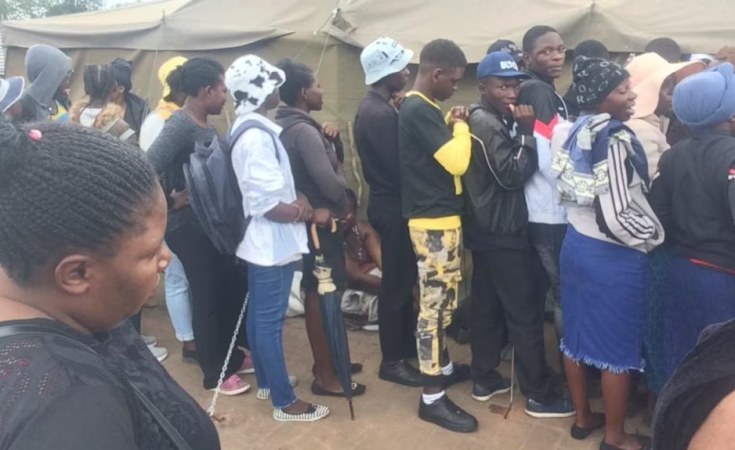An analysis of traditional leaders and police conduct towards elections by the Democratic Governance and Rights Unit (DGRU), has shown a pattern of repressive measures including selective application of the law when dealing with opposition parties and civic society organisations.
The annual journal on Democracy, Governance and Human Rights in Zimbabwe by DGRU revealed that intimidation and coercion of people, partisan distribution of aid and openly campaigning for the ruling party by chiefs and police is rife towards a general plebiscite.
Other freedoms that are stifled during the same period, according to the DGRU report, include liberty of association and assembly.
DGRU said some of the laws such as the Traditional Leaders Act that provides their duties and responsibilities needed revision since they contain provisions that allowed for the manipulation of chiefs by the ruling party.
"The Act is outdated and inconsistent with the Constitution. The Act gives the President the power to appoint Chiefs whilst giving due consideration to the prevailing customs of that Community," read the DGRU journal.
The same law also provides for appointment and removal in line with their prevailing customs making traditional leaders vulnerable to manipulation and coercion by the government.
"There have been reports of traditional leaders warning villagers to vote for the ruling party if they still want to stay in the area or benefit from government programmes.
"The SADC Observer Mission for the 2018 elections noted concerns by stakeholders that traditional leaders were using their influence to coerce or intimidate people to vote for ZANU PF.
"Some traditional leaders campaigned for ZANU PF, participated in partisan distribution of food aid, occupied leadership positions in party structures or coerced villagers to vote for the ruling party."
In 2018, the Zimbabwe Human Rights Commission received 46 complaints of intimidation and coercion against traditional leaders in the run up to the elections.
"Traditional leaders have also become the gatekeepers of the ruling party with some of them stopping villagers from attending rallies by other parties, denying opposition parties and CSOs access to their communities and forcing them to attend ruling party rallies," added the journal.
DRGU said police conduct during the election period showed intensified brutality while arbitrary arrests increased.
"Through use of repressive laws and adding their own unlawful actions such as arbitrary use of force and dragnet arrests, police have made it difficult and dangerous for people to freely assemble and associate especially during electoral periods."
According to the journal, in March 2007, at a 'Save Zimbabwe campaign' prayer meeting, police violently disrupted the meeting, injuring many, arresting opposition MDC leaders and other civil society leaders.
"In the 2013 harmonised elections observation report, Zimbabwe Election Support Network (ZESN) reported twelve cases of harassment of CSOs by the police ranging from arbitrary arrests, office raids, detention without charge, and confiscation of voter education material inter alia.
"75 out of the 274 cases documented by the Zimbabwe Human Rights NGO Forum in August 2018 were committed or suspected to have been committed by police including arbitrary arrests, assaults, disruption of meetings and abductions," read the journal.
This year alone, police have already arrested 26 members of the Citizens Coalition for Change (CCC) for allegedly conniving an unsanctioned gathering in Budiriro.


